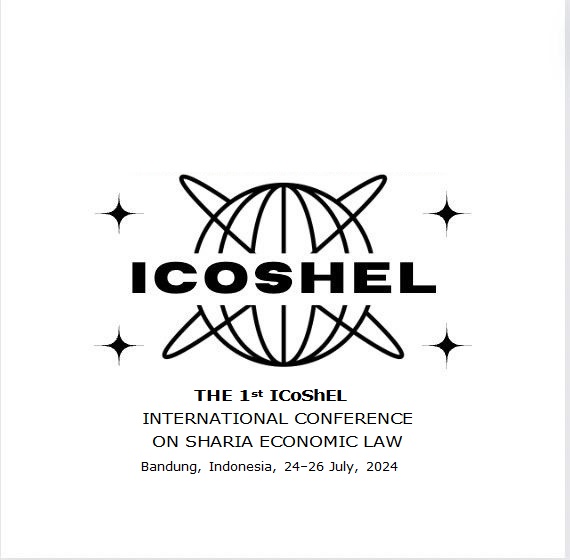Sharia Peer-to-Peer Lending Financing
A Funding Alternative for MSMEs in Indonesia
DOI:
https://doi.org/10.47766/al-hiwalah.v3i2.4670Keywords:
Peer-to-Peer, Sharia Financing, MSMEs, Sharia Fintech, Access to CapitalAbstract
Sharia-based Peer-to-Peer (P2P) lending has become one of the funding alternatives for Micro, Small, and Medium Enterprises (MSMEs) in Indonesia that have limited access to capital from conventional banks. By using Sharia principles, this P2P lending aims to provide funding services that follow Islamic values and are open to MSME players. Research objectives: This study aims to analyze the role, effectiveness, and challenges of Islamic P2P lending financing in supporting the development of MSMEs in Indonesia and assess its compliance with Islamic economic principles. Research method: This research uses a qualitative approach with a literature study method and in-depth interviews with several MSME players and Islamic P2P lending service providers. Secondary data were obtained from reports and publications of the Islamic fintech industry, while primary data were collected through interviews that were thematically analyzed. Research results: The results show that Islamic P2P lending financing can provide significant alternative funding for MSMEs in Indonesia, especially in terms of accessibility and flexibility. However, there are challenges related to regulation and public education on Islamic financing. The Sharia-compliant P2P lending system also attracts MSMEs that are committed to the halal economy, although there is a need for improvement in the transparency aspect.
References
Alannawa, Sonia Rosta, ‘Strategi Islamic Branding Lembaga Fintech Syariah Dalam Menarik Minat Funder Dan Beneficiary: Studi Pada ALAMI Fintech Sharia’, At-Tasyri’: Jurnal Hukum Dan Ekonomi Syariah, 4.2 (2023) <https://doi.org/10.55380/tasyri.v4i2.482>
Fauzia Ulirrahmi, ‘Peer to Peer Lending Syari’ah: Wadah Investasi Bisnis Sektor Riil Untuk Pengembangan UMKM’, Al-Hiwalah: Journal Syariah Economic Law, 2.1 (2023), pp. 18–36, doi:https://doi.org/10.47766/alhiwalah.v2i1.1471.
Harahap, Agus. Salim, and Saparuddin Siregar, ‘Kepatuhan Syariah Aspek Bagi Hasil Perbankan Syariah’, Seminar Nasional Teknologi Komputer & Sains (SAINTEKS) 2020, 2020
Harianto, Raden Achmad, and Pratiwi Nila Sari, ‘Strategic Digitalization of UMKM Business as an Alternative to Survive the COVID-19 Pandemic’, Linguistics and Culture Review, 5.S1 (2021) <https://doi.org/10.21744/lingcure.v5ns1.1446>
Khasanah, ‘Peran UMKM (Usaha Mikro Kecil Menengah) Guna Meningkatkan Kesejahteraan Masyarakat’, Demagogi: Journal of Social Sciences, Economics and Education, 1.1 (2023) <https://doi.org/10.61166/demagogi.v1i1.2>
Maharani Tambunan, Shalsabila Putri, and Zulham Zulham, ‘Analisis Penyelesaian Sengketa Cicilan Peer to Peer Lending Syariah Perspektif Fatwa Dewan Syariah Nasional-Majelis Ulama Indonesia’, Jurnal EDUCATIO: Jurnal Pendidikan Indonesia, 9.2 (2023) <https://doi.org/10.29210/1202323229>
Misradin, S, ‘Social Intrepreneurship Sebagai Gagasan Inovasi Sosial Bagi Pembangunan Perekonomian Masyarakat Berdasarkan Prinsip-Prinsip Ekonomi Syariah’, Jurnal Ilmiah Ekonomi Islam, 9.01 (2023)
Muadz, M, and Bambang Waluyo, ‘Pengaruh Persepsi Kemudahan Penggunaan Dan Literasi Keuangan Syariah Terhadap Minat Memijam Di P2P Lending Syariah Dengan Promosi Sebagai Variabel Moderasi’, Seminar Nasional Akuntansi Dan Manajemen PNJ, 3 (2022)
Muchtar, Suwarma Al, Metode Penelitian Kualitatif (Bandung: Gelar Pustaka Mandiri, 2015)
Mukminati, Andan Hafsari, ‘Problematika Hukum Peer To Peer Lending Syariah Di Indonesia’, Jurnal Hukum Dan Pembangunan Ekonomi, 10.2 (2022) <https://doi.org/10.20961/hpe.v10i2.64922>
Pratiwi, Cindi Husna, ‘Analisis Persepsi Masyarakat Terhadap Pembiayaan Financial Technology Peer To Peer (P2P) Lending Syariah Dan Pembiayaan Bank Umum Syariah Di Indonesia’, Universitas Islam Negeri Sumatera Utara Medan, 2020
Salvasani, Alifia, and Munawar Kholil, ‘Penanganan TerhadaP Financial Technology Peer-To-Peer Lending Ilegal MelaluI OTOrITas Jasa Keuangan (Studi Pada OJK Jakarta Pusat)’, Jurnal Privat Law, 8.2 (2020) <https://doi.org/10.20961/privat.v8i2.48417>
Sugiono, ‘Metode Penelitian Kualitatif Sugiyono’, Mode Penelitian Kualitatif, 5.January (2013)
Wilantini, Cici’, and Fadllan Fadllan, ‘Equity Crowdfunding Dan Usaha Mikro Kecil Menengah: Kajian Equity Crowdfunding Sebagai Instrumen Pendanaan UMKM Syariah’, El-Qist: Journal of Islamic Economics and Business (JIEB), 11.1 (2021) <https://doi.org/10.15642/elqist.2021.11.1.82-97>
Zahra, Qiny Shonia Az, and Elis Nurhasanah, ‘Analisis Tingkat Literasi Keuangan Syariah UMKM Di Tasikmalaya’, EKSISBANK: Ekonomi Syariah Dan Bisnis Perbankan, 7.1 (2023) <https://doi.org/10.37726/ee.v7i1.816>
Sutisna, Friska Cahyu and others, ‘Analisis Manajemen Risiko Pada Pembiayaan Peer To Peer Lending Syariah Dalam Menekan Non-Performing Financing (NPF) Pada PT Ethis Fintek Indonesia’, Islamic Economic and Finance Journal, 4.1 (2023)
Syihabudin, Syihabudin and others, ‘Do Word of Mouth and Religiosity Affect the Interest of MSME Actors in Sharia P2P Lending?’, Ekonomi, Keuangan, Investasi Dan Syariah (EKUITAS), 4.4 (2023) <https://doi.org/10.47065/ekuitas.v4i4.3393>
Yahya, Adibah and others, ‘Pengembangan UMKM Melalui Pemanfaatan Model Layanan Fintech Syariah Ammana.Id’, Is The Best Accounting Information Systems and Information Technology Business Enterprise This Is Link for OJS Us, 5.2 (2020) <https://doi.org/10.34010/aisthebest.v5i2.3049>
Suharmanto, Tri and others, ‘Perencanaan Strategis Pada Industri Financial Technology (Studi Kasus : Fintech Alami Sharia)’, Jurnal Ekonomi Bisnis Manajemen, 6.2 (2021)
Sarfiah, Sudati Nur and others, ‘UMKM Sebagai Pilar Membangun Ekonomi Bangsa’, Riset Ekonomi Pembangunan, 2019
Klein, Galit and others, ‘Why Do Peer-to-Peer (P2P) Lending Platforms Fail? The Gap between P2P Lenders’ Preferences and the Platforms’ Intentions’, Electronic Commerce Research, 23.2 (2023) <https://doi.org/10.1007/s10660-021-09489-6>
Downloads
Published
Issue
Section
License
Copyright (c) 2024 Harjoni Desky, Asmah Savitri

This work is licensed under a Creative Commons Attribution-ShareAlike 4.0 International License.






